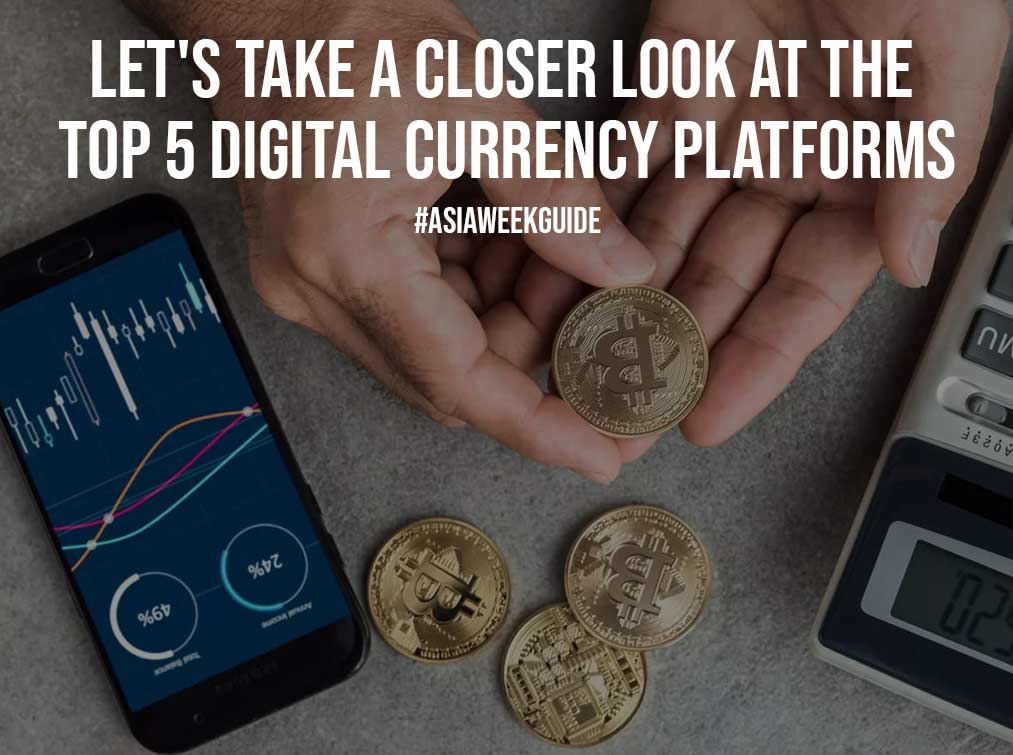Ever since Satoshi Nakamoto created Bitcoin in 2009, the cryptocurrency market has grown like a weed. It’s become the financial system of choice for millions of people who are fed up with being extorted by traditional financial institutions and value decentralization over everything else.
Cryptocurrency is a digital currency secured by Blockchain and is decentralized, meaning that no bank or government controls it. The peer-to-peer payment system means that nobody stands between you and your money. However, every computer that has a copy of the blockchain (which keeps track of all transactions ever made) can verify new transactions when they happen.
Or in other words, cryptocurrency is digital cash, but faster and cheaper to use than any other electronic payment method out there.

If you want to learn more about cryptocurrency and how it’s revolutionizing the financial industry, check out this blog post.
Easy Access to Cryptocurrency
The simplest way to check cryptocurrency prices is through a cryptocurrency exchange, which also allows users to exchange fiat money for Bitcoin and other major digital currencies. There are also multiple apps available for your smartphone that simplify the process of buying and selling cryptocurrency on the go—if you don’t want to deal in fiat currency at all.
By using an app like OKX, you can store your cryptocurrency in a wallet on your phone or computer, which is easier than having to remember logins and passwords for individual exchanges (although some people prefer this method).
If you’d rather not spend any money upfront, there’s another option known as mining. Mining refers to earning cryptocurrency by providing computing power for maintaining the blockchain. Cryptocurrency mining requires specific hardware called ASICs that are extremely powerful compared with typical computers, so it may be hard for most people to set up their rigs at home.
Also Read: Shiba Inu Price Prediction 40%
Transparency
For the most part, financial transactions have historically been handled by trusted middlemen and centrally-controlled banks. The removal of these factors in favor of a decentralized peer-to-peer system has many benefits, including making transactions more transparent and giving control back to the people.
Because there are no central authorities, all exchanges are completely open to public scrutiny. Each transaction is recorded on a public ledger called a blockchain—a chain of blocks that are maintained by computers across the world.
This provides an objective record of all information about each exchange: the parties involved, the approximate time of each event, as well as details about how much was exchanged and what kind of currency was used.
The transparency this offers us is unprecedented in terms of human history. You can examine exactly how much someone paid for their purchase or how much they’re holding in their account at any given time.
While some may feel uneasy knowing that anyone can look into their finances at any moment, we think increased openness will lead to a better financial ecosystem overall.
Decentralization
Most cryptocurrency trades take place between individual sellers and buyers on peer-to-peer (P2P) exchanges. These P2P exchanges are set up so that every trade happens directly between the two parties, with no middleman or third party holding or facilitating the transaction.
This is different from traditional financial companies or stock markets, where a large institution like a bank acts as an intermediary and is responsible for ensuring that the transfer goes smoothly.
Once you’ve chosen which cryptocurrency you want to trade with, you can make a direct offer in terms of how much another user will pay for it in their preferred currency and then send them your desired amount when they accept your offer.
The best part about this is that cryptocurrencies can be traded 24/7, there’s no time limit or day of rest needed.
No Third Parties
Originally, financial services were provided by banks. A bank would take your money and safely store it for you, for a small fee. The bank would also give you checks in your name, allowing you to buy things with those checks. For a fee, the bank would collect the money that was deposited in your account and give it back to you as needed over time.
In an era when we can send information between people instantly around the world at almost no cost, it seems silly to pay such high fees just to make all of that happen.
And so, we have come to rely on middlemen like banks and clearing houses instead of using more direct means of moving funds from one person’s account directly into another’s.
When initiating a transaction with another person (i.e., transferring funds), both parties can mutually agree on how they want things handled if something goes wrong along the way.
This can be done quickly and easily because there is no need for anyone else, there are no third parties involved anymore.
More Secure Transactions
Blockchain technology is the most popular way to store and exchange cryptocurrency, but it’s not without its flaws. In addition to being secure, blockchain records transactions in a permanent ledger that can be accessed by anyone.
This has made it a favorite technology for those who want to maintain their privacy and avoid the fees associated with traditional money transfer systems such as banks and credit card companies.
For all its merits as a secure method of transacting money in a peer-to-peer fashion, there are still plenty of reasons why you might want to opt for another option if your goal is simply sending money without having to provide any personal information.
Greater Privacy
There are many things you can do with traditional currencies like the US dollar like buy stuff, send money to friends and family, and pay your bills. But there’s something else you can do with it that may not be as obvious, track your purchases.
Not only is this possible from a practical standpoint but most banks have the option of turning on additional tracking features. Think of how many times you’ve gotten a text from your bank asking if you made that purchase or if your account was hacked.
One of the main benefits of cryptocurrency is that it allows for greater privacy when it comes to payments. It means that with cryptocurrency payments via services like Venmo or PayPal, all an outsider could see would be “a payment to John Smith”.
Whether that person knows John Smith personally probably isn’t immediately evident even to those who know him well.
While this doesn’t guarantee anonymity in all cases, it definitely can help prevent situations where someone feels worried about their financial information being used against them by someone they don’t know.
Also Read: What is the Most Energy Efficient Blockchain?
Cryptocurrency is changing the financial industry
Today, many of us are familiar with the idea of digital currency. It’s not only catching on among investors and entrepreneurs, it’s becoming more mainstream. Cryptocurrency is revolutionizing the financial industry in ways that were unthinkable even a few short years ago.
At its core, cryptocurrency is used to pay for goods and services online and in person. And it’s going to continue growing in popularity because it’s a more secure and convenient way to spend money.
It eliminates banks as middlemen, which means you’ll start seeing more transactions come closer to cash than before.





